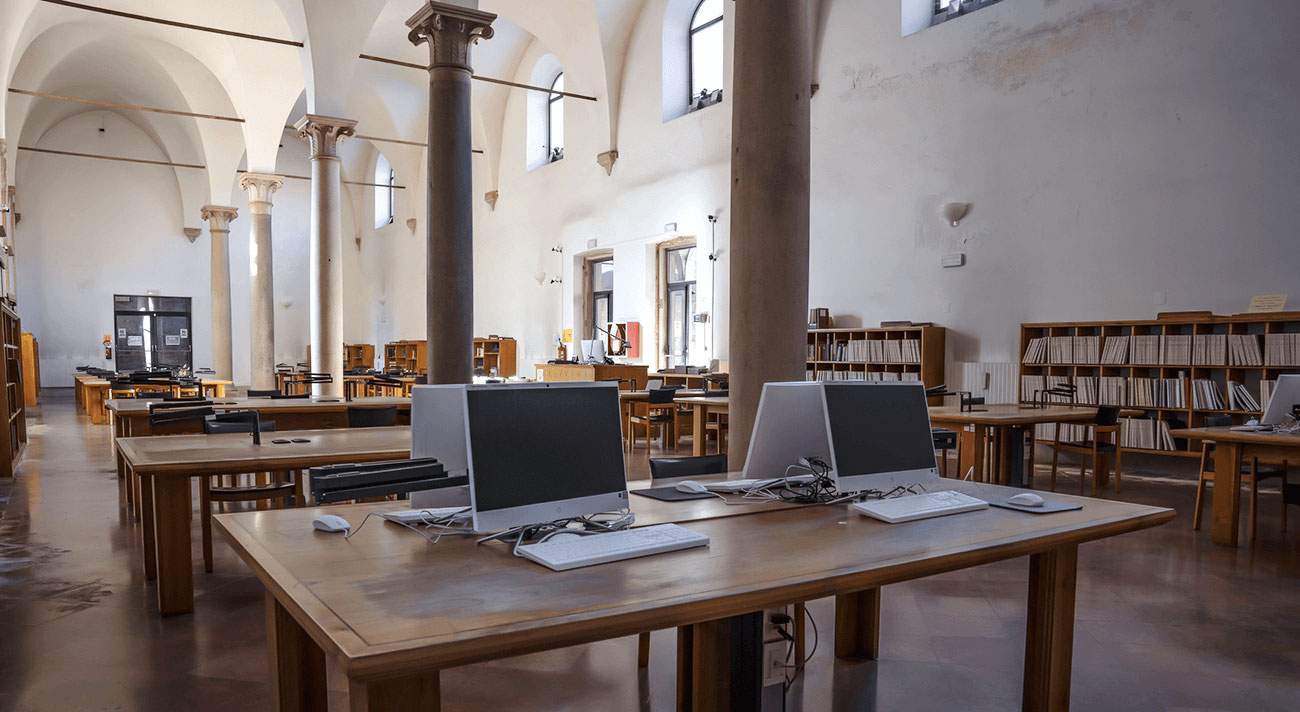In Venice, a group of as many as 360 international scholars from several major universities are denouncing the situation that has arisen at theState Archives of Venice, where access is still severely restricted under the guise of Covid, despite the fact that the institute’s spaces are immense and therefore there are no particular problems relating to possible contagion, all the more so at a time when, due to seasonality and vaccines, the Covid epidemic is receding.
“The State Archives of Venice,” explains one of the initiators of the letter written to Culture Minister Dario Franceschini and countersigned by the 360 scholars mentioned above, “refuses to facilitate the possibility for scholars to do their work. Despite being located in a monumental refectory (that of the Frari) and despite being equipped with tables that would allow the simultaneous presence of two people in compliance with the anti Covid-19 regulations, the current management persists in maintaining an admissions policy as if we were in the midst of a pandemic: only 10 users out of 70.” And all this in spite of the fact that the refectory is equipped with large doors open to the outside as well as large and numerous windows that can promote air recirculation, which, as experts teach, is one of the best weapons to fight the coronavirus. And again, in the consultation tables, even with two scholars per table, a spacing of at least two meters would continue to be ensured, given the size of the tables, and this would allow access to a total of 34 scholars instead of 10. Then there are also problems with the hours: before Covid, the hall opened Monday through Friday from 8:10 a.m. to 6 p.m., now from 9 a.m. to 2 p.m., with only one afternoon in addition.
But there are also other problems, which scholars also denounce in their letter to Franceschini. Until last May 31, access to all open-shelf consultation tools, such as some invaluable unreproduced files, was prevented, “which,” reads the letter sent to the minister, “has resulted in the effective impossibility of guaranteeing the progress of research and the consultation of archival series of great importance for research, a situation that has persisted for more than a year.” The scholars also point the finger at the cumbersome booking system, which works exclusively by e-mail, unlike the one chosen by other institutions in the city (Biblioteca Nazionale Marciana or Biblioteca Querini Stampalia): “this creates,” the letter reads, “not a few inconveniences for the users who are not aware of the available shifts or of their position on the waiting list. It is therefore not possible to understand what methods have been and are still being adopted in the allocation of the few available places, which does not make it easy to perceive that principle of transparency to which an Office of the Public Administration should be inspired.” Reservations, moreover, are allowed only from the 15th of each month for shifts to be obtained three months apart (for example, one books in June to get a place in September, and it was precisely the September reservation, scholars say, that was exhausted in the space of one night, from 00:01 to 7:33 a.m. on June 15, and this for a month of traditionally large numbers of foreign scholars, who will be even more this time because they have been waiting for a year to have access to the Archives).
Other problems noted by the scholars are the lack of priority accorded in the reservation of places to scholars, and particularly to researchers, doctoral students and thesis writers who have to advance their research under very tight time constraints. And again, the scholars complain that the service that allowed for exceptions to the number of archival pieces accessible daily has been suspended (“without any plausible reason”). Finally, the agreements, suspended due to Covid, that allowed the Archives to make use of volunteers and interns have not been reactivated.
All this, explains one of the promoters, “despite the fact that both the Biblioteca Nazionale Marciana and the Fondazione Querini Stampalia Library in the city have shown more openness to users in recent weeks. Venice is reopening its doors to tourists, waiters and (as you know) cruise ships, but scholars are not being allowed to frequent the Archives with just a little more intensity/flexibility. The situation is also known to Minister Franceschini. The Venice Archives, which is one of the most important in the world, showcases our country abroad because of the variety of international attendance. Doctorates, grants and research projects do not enjoy extensions and this situation has been dragging on for more than a year and a half.”
An unfortunate situation, then. “The difficulties that we hope to have illustrated,” the scholars conclude in their letter, “are having a very heavy impact on the research chain, and in particular on the role of archival research in scientific production (theses, publications, national and international research projects, funding for editions epublications... ) with devastating outcomes for individual scholars but also, we feel we can say, for the image of the Institute, which boasts international prestige and openness now seriously at risk.”
Pictured is the study room of the Frari refectory. Photo State Archives of Venice
 |
| Venice, under the guise of Covid, the State Archives is virtually off-limits |
Warning: the translation into English of the original Italian article was created using automatic tools. We undertake to review all articles, but we do not guarantee the total absence of inaccuracies in the translation due to the program. You can find the original by clicking on the ITA button. If you find any mistake,please contact us.